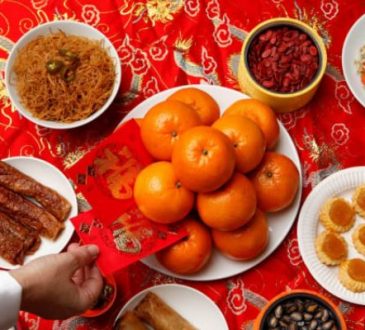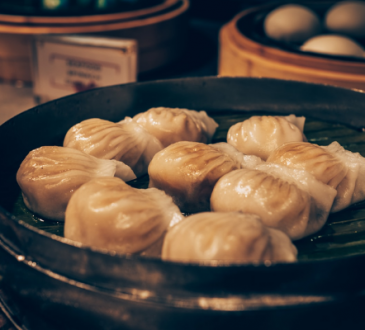How Long Can Chinese Food Last in the Refrigerator?
How Long Can Chinese Food Last in the Refrigerator? Chinese cuisine is renowned worldwide for its rich flavors, varied ingredients, and colorful presentation. From succulent dumplings to savory stir-fries, the range of dishes is vast and appealing. However, with our increasingly busy lifestyles, it’s common to order more than can be eaten in one sitting, leading to leftovers. Proper storage of these leftovers is crucial to ensure they remain safe and tasty. This article will explore how long Chinese food can last in the refrigerator, covering safety tips, best practices for storage, and signs of spoilage.
Contents
Understanding Food Safety

Before diving into specific timelines for refrigerating Chinese food, it’s important to understand some basic principles of food safety. The United States Department of Agriculture (USDA) highlights four main safety tips: clean, separate, cook, and chill. These principles help prevent foodborne illnesses and are particularly important when handling leftovers.
- Clean: Always wash your hands, utensils, and food preparation surfaces before and after handling food.
- Separate: Keep raw and cooked foods separate to avoid cross-contamination.
- Cook: Cook foods to the appropriate temperatures to kill harmful bacteria.
- Chill: Refrigerate perishable foods promptly to slow the growth of bacteria.
- Vegetables: Dishes primarily composed of vegetables tend to last longer, provided they haven’t been overcooked. Overcooking can lead to excess moisture, which promotes bacterial growth.
- Seafood: Seafood in Chinese dishes should be eaten more quickly, as it spoils faster than other proteins. Ideally, seafood should be consumed within 1-2 days.
- Tofu: Cooked tofu, common in many vegetarian Chinese dishes, typically lasts 3-4 days in the refrigerator. However, its texture may change, becoming more spongy or tough.
How Long Can Chinese Food Last in the Refrigerator?

Bacteria grow most rapidly in the temperature range between 40°F and 140°F, a range known as the “Danger Zone.” Leftovers, including Chinese food, should be refrigerated as quickly as possible to ensure they do not remain in this zone for long periods. Ideally, food should be refrigerated within two hours of cooking or delivery.
When it comes to leftovers, proper storage is key. Here’s how to best store Chinese food in the refrigerator:
- Cool Down: Allow hot leftovers to cool to room temperature before refrigerating. However, do not leave them out for more than two hours.
- Airtight Containers: Use airtight containers to store leftovers. This not only helps in retaining moisture and preventing them from drying out but also keeps odors from permeating other foods in the fridge.
- Separate Dishes: If possible, store different dishes in separate containers. This prevents flavors from mixing and allows each dish to maintain its integrity.
Shelf Life of Common Chinese Dishes

The shelf life of Chinese food can vary depending on the ingredients and preparation methods. Here is a general guideline for some popular dishes:
- Fried Rice and Noodles: These can last 3 to 4 days in the refrigerator. Since they are often cooked at high temperatures and contain oil, they tend to preserve well. However, be cautious with rice as it can harbor Bacillus cereus, a bacterium that can cause food poisoning if not stored properly.
- Dumplings and Spring Rolls: Cooked dumplings and spring rolls should be eaten within 3 days. If they contain seafood, they should be consumed more quickly.
- Soups and Broths: These can last up to 4 days. Make sure to reheat them to a rolling boil before eating to ensure safety.
- Cooked Meat Dishes: Dishes like General Tso’s chicken, beef broccoli, and others should be consumed within 3 to 4 days.
Tips for Maximizing Freshness and Flavor
To ensure that your leftovers remain delicious, consider the following tips:
- Reheat Properly: Always reheat leftovers until they are hot throughout. This helps kill any bacteria that might have grown during storage.
- Manage Portions: Only reheat the amount you plan to eat in one sitting. Repeated reheating can degrade the quality of the food and increase the risk of foodborne illness.
- Use the Freezer: If you doubt you will eat the leftovers within a few days, consider freezing them. Most Chinese dishes freeze well, and this can extend their shelf life for several months.
Signs of Spoilage
It’s important to recognize when leftovers have gone bad. Here are some signs of spoilage:
- Odor: Any unpleasant or off smells are a clear indication that the food should not be eaten.
- Texture Changes: Slimy or excessively mushy textures are a bad sign, especially in meats and vegetables.
- Mold: Any visible mold growth means the food should be discarded immediately.
Conclusion
While Chinese food can be a delightful treat, it is important to handle leftovers with care to enjoy them safely days after the initial meal. By following proper storage techniques and paying attention to the freshness and quality of your food, you can maximize both the shelf life and the enjoyment of your Chinese cuisine leftovers. Remember, when in doubt, throw it out to ensure your health and safety.
By understanding these guidelines, you ensure that your enjoyment of Chinese cuisine does not come at the cost of your health, allowing you to savor your leftovers with peace of mind.



